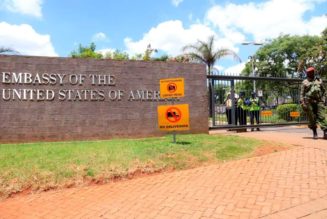
The Kenya Revenue Authority (KRA) now owes Sh4.79 billion to a Swiss firm it contracted nine years ago to supply excise stamps.
KRA has attributed the debt to the fact that the stamps were bought at a higher cost than the initial contract price.
Auditor-General Nancy Gathungu has revealed the debt in her latest audit report on KRA’s financial statements for the financial year 2022/23.
“The statement of financial position reflects a payables balance of Sh8,196,980,000 which, as disclosed in Note 15 to the financial statements includes an amount of Sh4,793,736,000 due to a supplier of excise stamps,” said Ms Gathungu.
“As of June 30, 2023, the debt owed to the company stood at Sh4,793,736,000,” she added.
The Auditor-General said the tax agency attributed the debt to the pricing of the excise stamps.
KRA said the excise stamps on non-alcoholic beverages were priced below the actual cost of stamps.
Further, the depreciation of the Kenyan shilling against the euro worsened the price discrepancy as the contract sum of the stamps was denominated in euros.
KRA handed the Excisable Goods Management System (EGMS) contract to SICPA Security Solutions SA, a Swiss company, in 2015.
The EGMS contract for the supply of excise stamps for both alcoholic and non-alcoholic beverages was a minimum of Sh15.9 billion and a maximum of Sh17.1 billion.
The terms of the contract were based on a time factor subject to the achievement of 12,876,633,889 stamps of the contract period of five years whichever came first.
Ms Gathungu notes that while the contract for the EGMS expired in July 2022, KRA is yet to pick a new supplier of the excise stamps.
This means that SICPA is still supplying the stamps beyond the contract period.
“Management had indicated that the process of sourcing for a new supplier was ongoing, but it was not clear whether the assets which would be handed over would be compatible with another supplier’s software,” said Ms Gathungu.
According to the Auditor-General, KRA has requested the Treasury to disburse funds to clear the debt.
Further, the debt is among those that were submitted to the pending bills verification.
“In the circumstances, it was not possible to ascertain when the handover of the EGMS will be done,” said Ms Gathungu.
The direct procurement of Sicpa by KRA became controversial and was the subject of a probe by the National Assembly’s Public Investments Committee (in 2019.
The big-money contract required Sicpa to print and supply excise stamps complete with a track and trace system.
It also included the delivery of an integrated production accounting system.
Kenya started to affix excise stamps on excisable goods in 2003 to track the goods across the value chain and seal revenue leakages.
The first phase of the excise stamps regime saw the stamps affixed on tobacco.
In 2007, Kenya expanded the scope to include wines and spirits.









